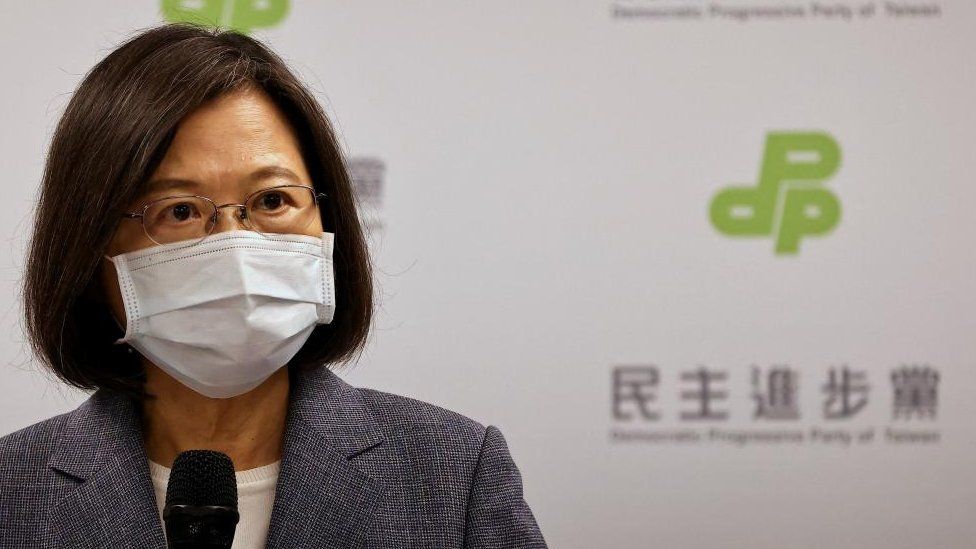
Taiwan’s President Tsai Ing-wen has resigned as head of the governing Democratic Progressive Party after its poor showing in local elections.
The opposition Kuomintang (KMT) won several major races on Saturday, including in the capital Taipei.
The vote has drawn global attention as Taiwan becomes a bigger geopolitical flashpoint between China and the US.
President Tsai had framed the election as a vote for democracy amid rising tensions with China.
“The election results were not as expected… I should shoulder all the responsibility and I resign as DPP chairwoman immediately,” Ms Tsai, who will continue as president of the self-ruled island, told reporters.
The elections for local councils and city mayors theoretically have a domestic focus, covering issues such as crime, housing and social welfare, and those elected will not have a direct say on Taiwan’s policy regarding China.
However, Ms Tsai and government officials urged voters to use the elections to send a message about standing up for democracy, as Beijing increases pressure on the island.
Voters also rejected lowering the voting age from 20 to 18, in a referendum that was run alongside the local elections.
The Chinese government sees Taiwan as a breakaway province that will, eventually, be part of the country.
But many Taiwanese people consider their self-ruled island – with its own form of government and a democratic system – to be distinct.
Tensions reached a peak in August when Beijing staged huge military drills around Taiwan in a protest against US House Speaker Nancy Pelosi’s visit to the island.
The US has long walked a tightrope over Taiwan. Officially, it has no formal ties with Taiwan, but has also pledged to supply the island with defensive weapons and stressed that any attack by China would cause “grave concern”.
Two parties, two views
There are two main political parties in Taiwan and they have differing approaches to China.
The Kuomintang (KMT), a party of conservative business champions, are traditionally seen as pro-China “doves”.
They have advocated economic engagement with China and have appeared to be in favour of unification, though they strongly deny being pro-China.
Their main rival is Ms Tsai’s governing Democratic Progressive Party (DPP). Ms Tsai won by a landslide in the 2020 national election.
She has taken a strong stance towards China, saying Beijing needed to show Taiwan respect and that Taipei would not bow to pressure.
She was re-elected on a promise to stand up to Beijing. Locals told the BBC at the time that protests in Hong Kong and Beijing’s subsequent crackdown on civil rights had raised concerns in Taiwan.

Leave A Comment